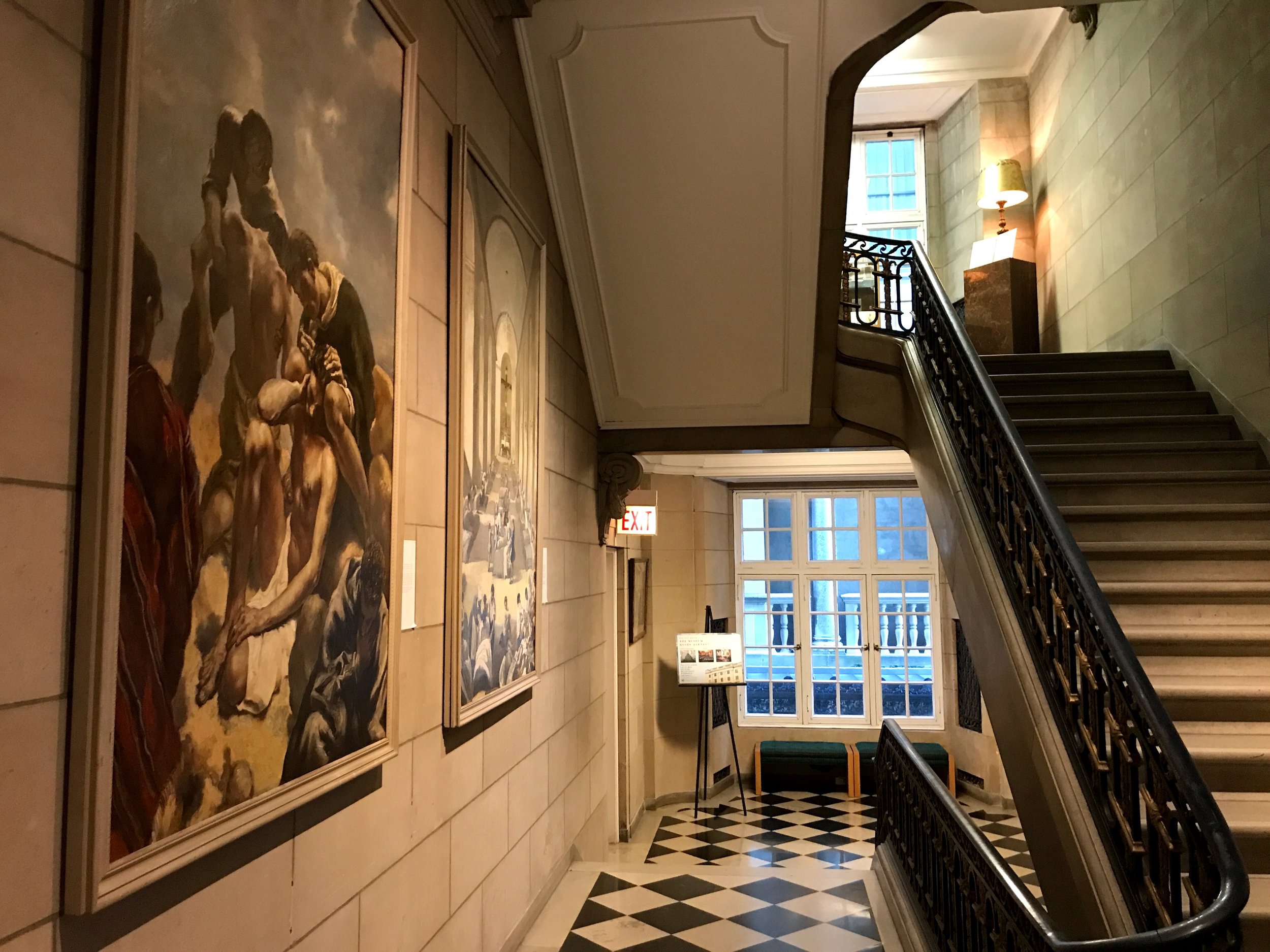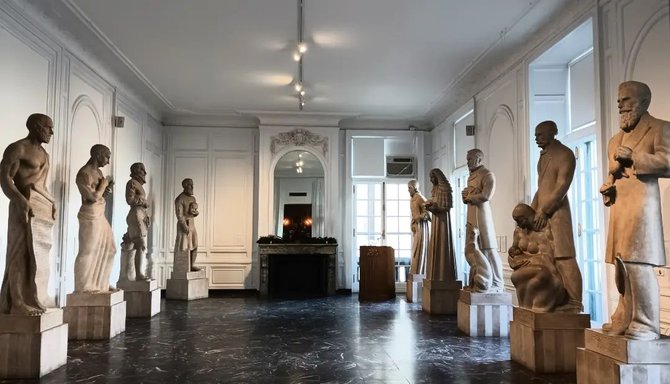Have you ever wondered what surgical tools were like centuries ago? Or how medical practices have evolved over time? The International Museum of Surgical Science (IMSS) in Chicago, Illinois, offers a fascinating glimpse into the history of surgery, providing a unique and thought-provoking experience for anyone interested in the evolution of medicine.

Image: www.thenotsoinnocentsabroad.com
Established in 1954, the IMSS is a non-profit institution dedicated to preserving and showcasing the history of surgery and its impact on human health. It houses a vast collection of surgical instruments, anatomical models, medical books, and personal artifacts from renowned surgeons throughout history. Stepping into the museum is like stepping back in time, providing a captivating journey through the development of surgical techniques, tools, and practices.
A Tapestry of Medical History
The IMSS’s collection spans centuries, offering a comprehensive overview of surgical history. Visitors can witness the evolution of surgical instruments, from crude and rudimentary tools used in ancient times to the sophisticated and precision instruments employed today.
Ancient Roots of Surgery
The museum’s collection showcases the earliest forms of surgical tools, dating back to ancient civilizations like Egypt, Greece, and Rome. These artifacts, often made from simple materials like bronze and bone, provide insights into the rudimentary techniques used to treat injuries and ailments.
The Renaissance and Beyond
The Renaissance marked a significant period of advancement in medicine, with the rediscovery of classical knowledge and the emergence of groundbreaking anatomical discoveries. The IMSS reflects this era with a collection of Renaissance-era surgical instruments, anatomical models, and medical illustrations.

Image: citydays.com
The Age of Enlightenment and the Industrial Revolution
The 18th and 19th centuries ushered in a period of significant scientific and technological advancements, which had a profound impact on surgery. The IMSS showcases instruments from this period, highlighting the development of specialized tools, the introduction of anesthesia, and advancements in surgical techniques.
The 20th Century and Beyond
The 20th century witnessed a revolution in surgery, with the development of antibiotics, antiseptics, and advanced surgical techniques. The IMSS showcases instruments and artifacts from this period, reflecting the transformative impact of these advancements on modern medicine.
Beyond Instruments: A Deeper Look into Surgical History
The IMSS isn’t simply a collection of tools, but rather a multifaceted exploration of surgical history, encompassing the stories of individuals who have shaped this field.
The “Hall of Fame” and Notable Surgeons
The museum features a “Hall of Fame,” showcasing the lives and contributions of renowned surgeons, including pioneers who introduced groundbreaking techniques and instruments. These exhibits delve into the personal stories and innovations of these remarkable figures, bringing history to life.
Personal Artifacts and the Human Element
Beyond instruments and models, the IMSS also features personal artifacts that offer a glimpse into the lives and experiences of surgeons throughout history. These artifacts can include handwritten notes, diaries, photographs, and correspondence, providing a rich tapestry of personal stories and perspectives that humanize the history of surgery.
The Ethical and Social Dimensions of Surgery
The museum also explores the ethical and social dimensions of surgery, highlighting the evolving role of surgical interventions in society. Exhibits examine the changing perceptions of surgery, the impact of surgical advancements on healthcare systems, and the ethical considerations surrounding medical interventions.
More Than a Museum: A Center for Education and Preservation
The International Museum of Surgical Science is not just a repository of historical artifacts, but also a vibrant hub for education, research, and community engagement.
Educational Programs and Outreach
The museum offers a variety of educational programs for students, teachers, and the general public. These programs provide insights into surgical history, illustrate medical advancements, and foster an appreciation for the complexities of healthcare.
Research and Preservation
The IMSS actively participates in research projects, collaborating with scholars and historians to document and analyze the history of surgery. The museum also plays a critical role in preserving historical surgical artifacts and ensuring their accessibility for future generations.
Community Engagement
The museum actively engages with the local community through public events, lectures, and workshops. These initiatives foster public awareness of medical history, provide opportunities for dialogue on healthcare issues, and promote cultural understanding.
International Museum Of Surgical Science
Conclusion: A Journey of Exploration and Inspiration
The International Museum of Surgical Science is a testament to the enduring impact of surgery on human health. It invites us to journey through time, exploring the evolution of surgical techniques, the stories of remarkable surgeons, and the ethical considerations that shape this vital field. Whether you have a professional interest in medicine or a general fascination with history, the IMSS offers a unique and enriching experience, inspiring a deeper appreciation for the advancements that have shaped our understanding of the human body and the power of surgery to heal, restore, and improve lives.






